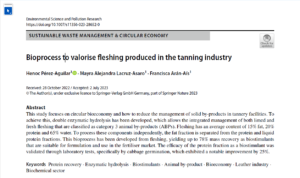A scientific article related to the Life Superbiodiesel project was published in July under the title “Bioprocess to valorise fleshing produced in the tanning industry”. The study focuses on the circular bioeconomy, as a system to promote the sustainability of natural resources, with the priority objective of preserving the environment to transform the solid by-products of the tanning industry.
The document explains the double enzymatic hydrolysis process applied to category 3 animal by-products (ABPs), which have incineration as their main end-of-life scenario. This waste has a high water content (65%), thus providing the oxidizer necessary to undertake the chemical reaction. This process allows the fat fraction to be separated from the protein fraction (solid) and liquid protein fraction, obtaining up to 78% mass recovery as biostimulant suitable for use as organic fertiliser. The document shows the tests carried out to validate the greater efficacy of the use of this protein fraction as a biostimulant.
These results can be downloaded in the subscription scientific journal “Environmental Science and Pollution Research” which, as its name reveals, has its focus on environmental sciences and other related subjects. Although its attention is very much set on chemical compounds, its approach is interdisciplinary. The DOI (Digital Object Identifier) can be obtained in the English website documents’ section.







Comments are closed.